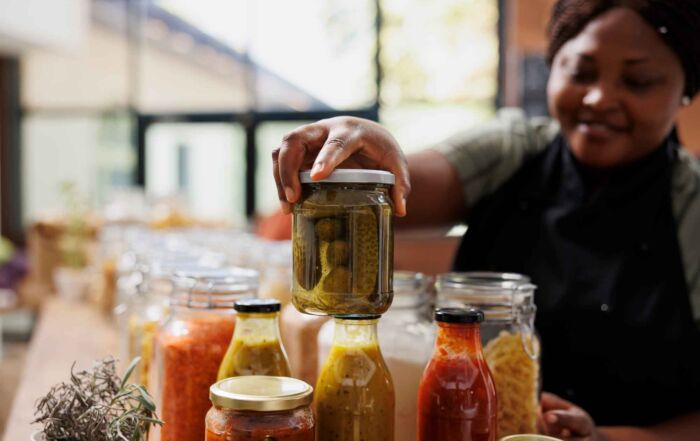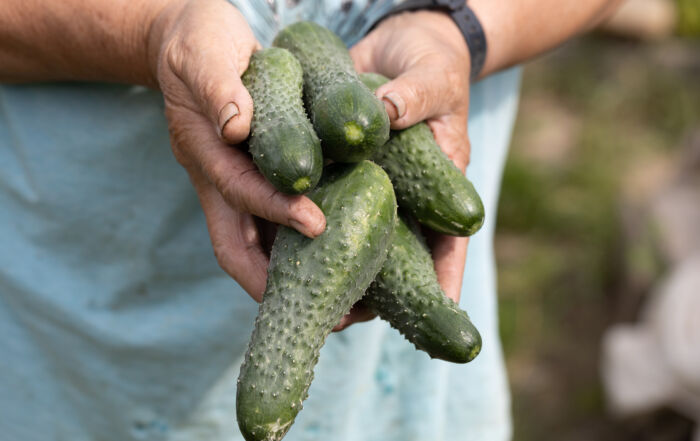Health code variance: What it is and why you might need one
I often receive questions from students and operators about various production practices within their operations and if a variance is required, and if so, how it is obtained. A variance is a misunderstood aspect of the food code, so I thought I might discuss a bit about them in the first blog this month.
A variance grants you permission to operate your food establishment in such a way that it modifies or waives a requirement of the food code. A variance is issued by the health authority in your jurisdiction; this could be the state agency responsible for health inspections. In my town and county in Kansas, it is handled by the Kansas Department of Agriculture. However, if your inspections are handled at the county or city-level, it is likely that level to which you would apply for a variance. The variance will provide you with a written document that authorizes your establishment to operate in a way that is contradictory to what may be stated in the food code. The food code outlines certain conditions under which variances are required. These include:
- Smoking food as a method of food preservation rather than as a method of flavor enhancement
- Curing food
- Using food additives or adding components such as vinegar to preserve/render non-time/temperature control for safety food.
- Packaging time/temperature control for safety food using Reduced Oxygen Packaging methods, except where the growth of Clostridium botulinum and Listeria Monocytogenes are controlled.
- Operating a molluscan shellfish life-support system display tank used to store and display shellfish that are offered for human consumption.
- Custom processing animals that are for personal use as food and not for sale or service in a food establishment.
- Preparing food by another method that is determined by the regulatory authority to require a variance
- Sprouting seeds (such as alfalfa or wheat grass) or beans in a retail food establishment
The variance will provide you with a written document that authorizes your establishment to operate in a way that is contradictory to what may be stated in the food code.
Requirements on submitting a variance application to your health authority will vary by jurisdiction, so it is important to visit with your health inspector, who can walk you through the process. Often, for a variance to be issued, it will require you to develop a HACCP plan for the process for which you are seeking a variance. In the end, the health department wants to know how you are going to keep food safety and protect public health. Thus, developing your variance application can be quite technical. While some operators have the food safety knowledge to complete the application on their own, I would encourage you to visit with a food safety consultant, a university extension professional, or a food science professor who can provide assistance with the technical aspects of the application and can ensure that your HACCP plan will provide the necessary preventative measures to ensure the safety of food served.
The application process for a variance can be costly, but without it your operation could be fined or face closure for failing to operate in accordance with the health code, so the decision to apply for a variance is an important one for you to consider.
Please be sure to check out our first Safe Bites Webinar of 2022, Getting the Word Out: Communicating Your Organization’s Food Safety Practices, presented by Dr. Catherine Strohbehn. Unlike previous years, we are going to change things up a bit and the webinars will be offered on-demand. They are still approved by the Certifying Board for Dietary Managers for Continuing Education and the School Nutrition Association and you will still be able to submit any questions you have for follow-up! The webinar should be available to watch mid-month. Risk Nothing.
READ MORE POSTS
Why Canning in Foodservice Really Isn’t a Good Way to Preserve Fresh Produce
Canning has long been a trusted method for preserving fresh produce, offering a way to extend [...]
Managing Food Safety During the Foodservice Holiday Rush
The holiday season is a time of increased activity and demand in foodservice operations, from catering [...]
Ongoing Outbreaks: What We Can Learn from the Most Recent Carrot and Cucumber Outbreaks
Last month in our blog, we highlighted the recent E. Coli outbreak stemming from onions served [...]
The Hidden Dangers: Allergens in Your Foodservice Operation
It has been a while since we have addressed or discussed allergens in the blogs. In [...]










